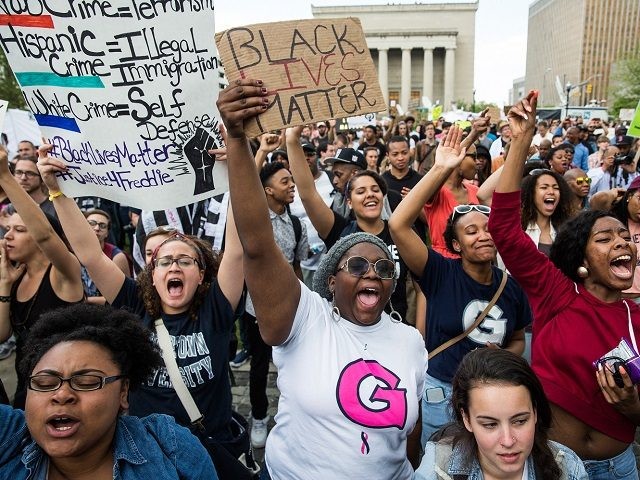In a searing new interview, bestselling author and culture warrior Mary Eberstadt has unmasked today’s identity politics as an intellectually bankrupt movement born out of the breakdown of the family and a rejection of rational discourse.
The trend of identity politics is marked by its resistance to the free exchange of ideas, preferring name-calling, insult and violent protest to logical argumentation, Eberstadt laments, since it is built around a core of “emotionalism and unreason.”
In the end, identity politics is really “deeply felt irrationalism,” she said in her Nov. 20 interview with Catholic News Agency.
A senior fellow of the Faith & Reason Institute, Eberstadt builds on Columbia University professor Mark Lilla’s groundbreaking work, The Once and Future Liberal: After Identity Politics, in which the author decried the implosion of the Democratic Party and liberalism itself, brought on by a growing disconnect from middle America and enthrallment to identity politics.
As Breitbart News reported last August, Lilla considers liberalism to be “a creed professed mainly by educated urban elites cut off from the rest of the country who see the issues of the day principally through the lens of identities.”
For liberals, “Americans” have ceased to exist and have been replaced with “women, Hispanics, ‘ethnic Americans,’ the LGBT community, Native Americans, African Americans, Asian Americans and Pacific Islanders.”
In her new interview, Eberstadt expands on Lilla’s work, arguing that identity politics is “toxic across society.”
“The decibel level of unreason makes it hard to advance a civil, rational case about anything,” she says. “And the Manichean division of the world into victims and oppressors leaves little space for nuance or anything else.”
Earlier this month, Eberstadt described what she called the “primal scream” of identity politics in an article in the Weekly Standard, noting that the its uniqueness rests in “its profound and immediate emotivism, its frightening volatility, its instantaneous ignition into unreasoned violence.”
“Non-progressive speakers who have nothing to do with racism or supremacism are regularly harassed, threatened, disinvited, and shouted down on campuses across the country,” Eberstadt declared.
As a result, identity politics has quickly devolved into “dangerous collective hysteria,” she contended, and now on college campuses and elsewhere, it’s “all panic, all the time.”
In her recent interview, Eberstadt searches for the root cause of this frightening phenomenon, and concludes that it resides in the lethal pollution of the “human ecosystem.”
“Isn’t the most obvious culprit here the implosion of the family, the removal from many young people’s lives of a reliable circle of not one, or two, but many reliable, consistent, loving figures in the home?” she asks. “The family has been fractured for many by various familiar factors, among them divorce; the continuing rise in single-motherhood; and the simultaneous shrinking numbers of siblings, cousins, and other extended family thanks to contraception and abortion.”
The radical alteration of family structure and its decline into a random, seemingly arbitrary series of fluid and temporary relationships has pulled the social rug out from under the feet of an entire generation, Eberstadt argues.
The absence of a stable family has created isolation and rootlessness, which is why young people grope about so desperately for an identity that has been denied them, she says.
And in place of religion, which offered a solid worldview and a matrix of meaning and accountability, young people now spend their time with therapists who help them explore their inner vacuum while blaming everyone but themselves for their often catastrophic life choices.
In her hard-hitting analysis, Eberstadt calls on Christians to recover their own distinctive voice rather than mimicking the categories and concerns of the society around them.
“The Church needs to do one thing: be the Church,” she declares, noting that the temptation to bend to the times is “prodigious.”
This means no soft-pedaling unpopular themes like Christian sexual morality, she observes, because to do so is to deny this age the one effective remedy to its woes.
Because “acquiescing to the times, and tacitly or overtly abandoning the very moral code that is a lifesaver for the family, isn’t going to spell relief from identity politics – or from the social changes that created such a culture of grievance,” she argues.
Only if we are willing to recognize that the root cause of identity politics is “pathos brought on by familial destruction,” she contends, will we be able to begin to address the damage that has been done and bring some of its victims—and society itself—to a better place.
Follow Thomas D. Williams on Twitter Follow @tdwilliamsrome

COMMENTS
Please let us know if you're having issues with commenting.